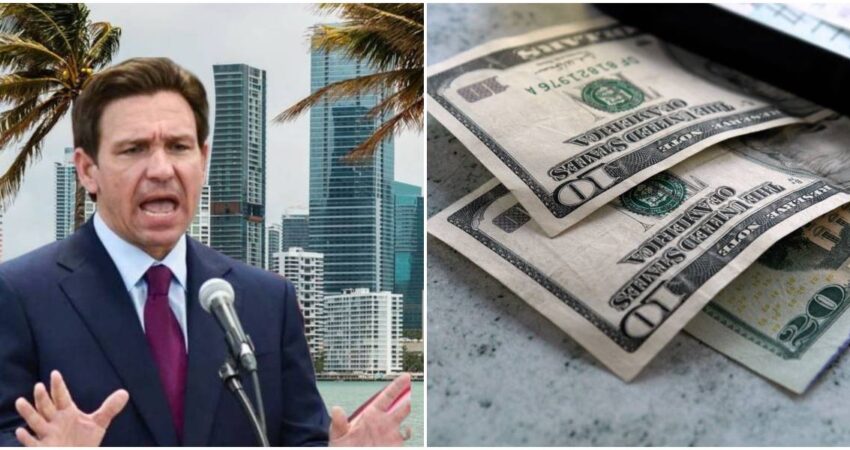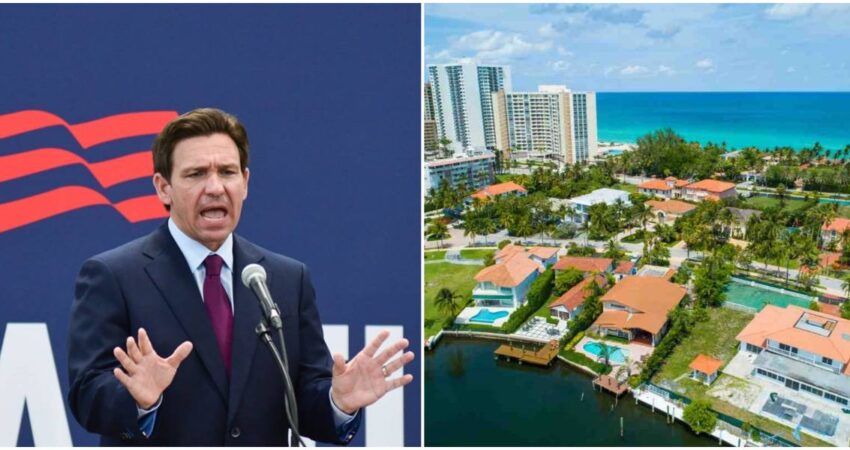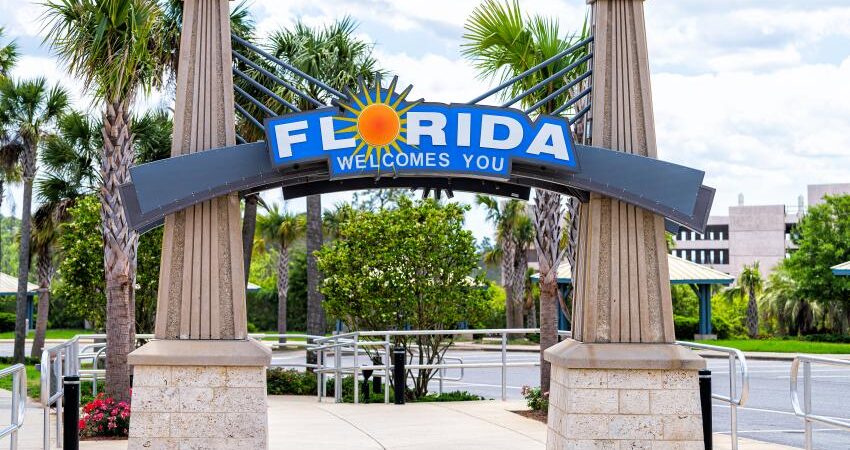
Florida, one of the lowest-taxed states in the country, could take an unprecedented step: eliminating the property tax on primary residences. HJR 201, introduced by Republican Representative Kevin Steele (District 55, north of Tampa), seeks to amend the state Constitution to completely exempt homestead owners from paying the ad valorem tax, effective January 1, 2027.
The proposal is supported by Governor Ron DeSantis, who presents it as a measure to "protect Floridians' right to keep their homes without being taxed out of them."
What the reform contemplates
The plan would eliminate the property tax on primary residences, but would maintain the component that funds school districts, so that contributions earmarked for elementary and secondary education would continue. To mitigate criticism about public safety, the text includes a clause prohibiting counties and municipalities from reducing police funding as a result of eliminating the tax.
The origin: an affordability crisis
Since the pandemic, Florida has experienced skyrocketing housing prices, which has driven up assessed property values and, with them, property tax rates, causing considerable financial damage to the state's homeowners and sparking support from political leaders seeking to ease this burden.
Homeowners—especially retirees and middle-income families—have seen the cost of maintaining their homes rise despite the 3% annual growth cap. Steele argues that his bill prevents the government from "punishing" those who see their home values rise, at a time when prices in Miami, Tampa, and Naples have reached historic highs.
Fiscal risks and territorial inequalities
However, experts and civic organizations warn that this reform could weaken local finances. County and city governments depend on this tax to fund essential services: firefighters, street maintenance, parks, libraries, community health, and social programs.
The Florida Education Association (FEA) warns that property taxes account for nearly half of the school budget (46%), and that any change in their structure could exacerbate inequality between wealthy and rural districts.
“Eliminating property taxes on homes would destabilize the funding of rural county governments. They would be forced to cut essential services or drastically increase sales taxes, which would particularly affect lower-income residents,” explained tax policy analyst Chad Cummings, a tax attorney and certified public accountant.
A challenging political and constitutional path
For the proposal to become a reality, it will have to overcome several hurdles. First, it must be approved by three-fifths of both chambers of the state legislature. Then, it must be endorsed by at least 60% of the electorate in a referendum.
If both steps are completed, the elimination would take effect in early 2027, marking one of the most profound fiscal transformations in the state's history.
Seven other property tax initiatives are being debated in parallel, although none proposes a complete elimination like HJR 201, considered by analysts to be the most ambitious and fiscally risky.
To date, the Florida State Legislature has eight proposals on the table seeking to transform the current property tax system. Seven of them will be put to the ballot in the 2026 elections, including the one sponsored by Representative Steele.
According to Newsweek, only one—HJR 201—proposes completely eliminating this tax, although it would maintain the portion designated for the maintenance of the public education system, from primary to secondary school.
“Placing multiple property tax measures on the ballot is a strategy to block any progress. It’s a political game, not a genuine attempt to benefit the public,” the Florida governor recently wrote on his X account.
Potential impact on Miami-Dade and South Florida
In urban counties like Miami-Dade, Broward, and Palm Beach, where home values have soared more than 60% in five years, eliminating the tax could provide significant relief to homeowners. However, those same counties rely on the tax to sustain critical infrastructure—such as transportation, water, sanitation, and coastal resilience programs—which suggests significant budgetary strains if the measure is passed.
In rural areas in the north and center of the state, where the average cadastral value is lower, the elimination could benefit families less and create financial gaps between territories.
A debate that reflects Florida's fiscal philosophy
Steele's initiative fits into the tax relief agenda promoted by DeSantis, who has reduced sales, fuel, and small business taxes, in line with the state's conservative identity. However, this proposal takes that philosophy to the limit, challenging the balance between tax relief and the sustainability of public services.
Democrats in the Legislature have warned that the plan “may sound good on the campaign trail, but it will drain local coffers and hit the services working families use most.”
Towards a high-voltage referendum
If the amendment advances to the 2026 ballot, the campaign promises to be one of the most polarized of the decade in Florida. For Republicans, eliminating the homeowners' tax would be "a historic victory for the middle class." For critics, it would be a "tax bomb" that would shift costs to other sectors.
The debate will not only define state tax policy, but also the relationship between the central government in Tallahassee and the counties, opening a new era in the economic history of the Sunshine State.






